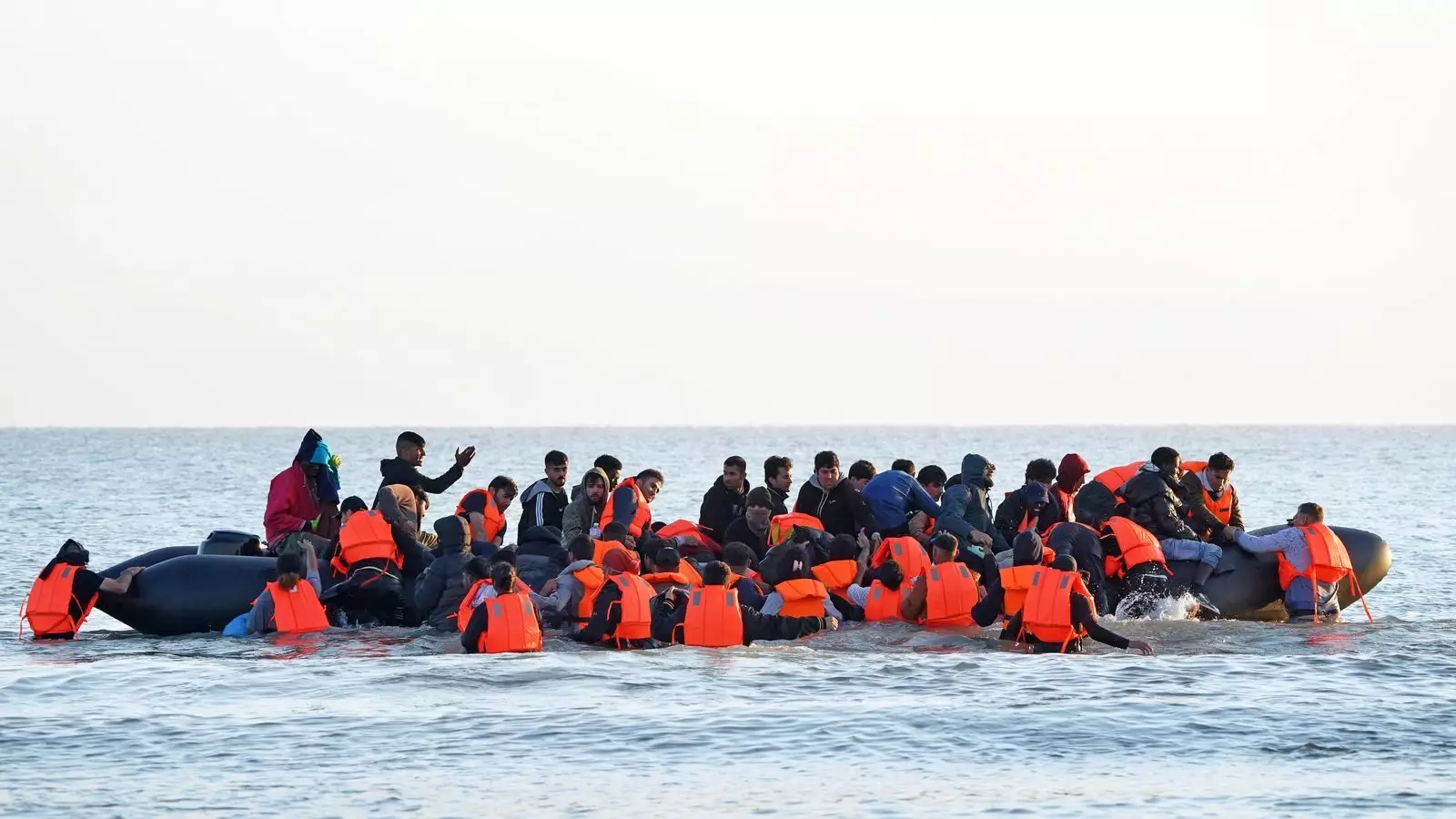The question of migration, particularly across perilous routes like the English Channel, continues to dominate headlines in the United Kingdom. Provisional government figures for 2024 reveal that a staggering 36,816 migrants crossed this bustling waterway, marking a 25% increase from 29,437 arrivals in 2023. Notably, this surge positions 2024 as the second-highest year for crossings since records began in 2018, albeit a 20% decline from the alarming peak of 45,774 arrivals seen in 2022.
During these years, we observe a troubling trend: while the numbers of migrants attempting this dangerous journey are consistently rising, fatalities are also reportedly climbing. The Home Office did not disclose any figures regarding the deaths of migrants in 2024, but available information suggests this may have been the deadliest year for such crossings, with French authorities reporting at least 53 fatalities.
To fully grasp the significance of these figures, it is essential to observe the historical trajectory of migration patterns into the UK. In 2018, only 299 individuals made the hazardous journey. Over the subsequent years, those numbers surged—an exponential increase seen in 2019 (1,843), 2020 (8,466), and 2021 (28,526). This incremental, yet rapid ascent illustrates a growing desperation among those seeking refuge, raising complex questions regarding not only policy responses but also the humanitarian obligations of nations.
The complexity of migration routes is exacerbated by the geopolitical landscape. While individuals from certain countries, such as Ukraine and Afghanistan, have access to safe and legal pathways into the UK, the vast majority are left reliant on treacherous options fraught with risk. The reliance on smuggling networks highlights a significant flaw in asylum processes, drowning legitimate claims for protection in a tide of illegal crossings.
As political discourse intensifies, both major UK political parties have pledged to tackle the issue of Channel crossings, vowing to dismantle the criminal networks that exploit vulnerable individuals. The rhetoric from a Home Office spokesperson starkly emphasizes the moral depravity of people-smuggling gangs, who prioritize profit over human lives. This framing not only calls for a hardline approach but raises concerns about the efficacy and ethics of such measures.
Indeed, whilst dismantling organized crime is crucial, one must also contemplate the broader sociopolitical circumstances driving such individuals to undertake these perilous journeys. As global crises continue to displace populations, understanding the root causes is vital for developing more effective migration policies.
The statistics surrounding Channel crossings paint a grim picture of an ongoing humanitarian crisis. The apparent rise in attempted crossings juxtaposed with the increase in fatalities calls for urgent action—actions not solely focused on punitive measures but also on providing viable, secure alternatives for those in need. Moving forward, a multifaceted approach that encompasses prevention, compassionate response, and international cooperation may be the only way to effectively address the complexities of migration across the English Channel.

Leave a Reply